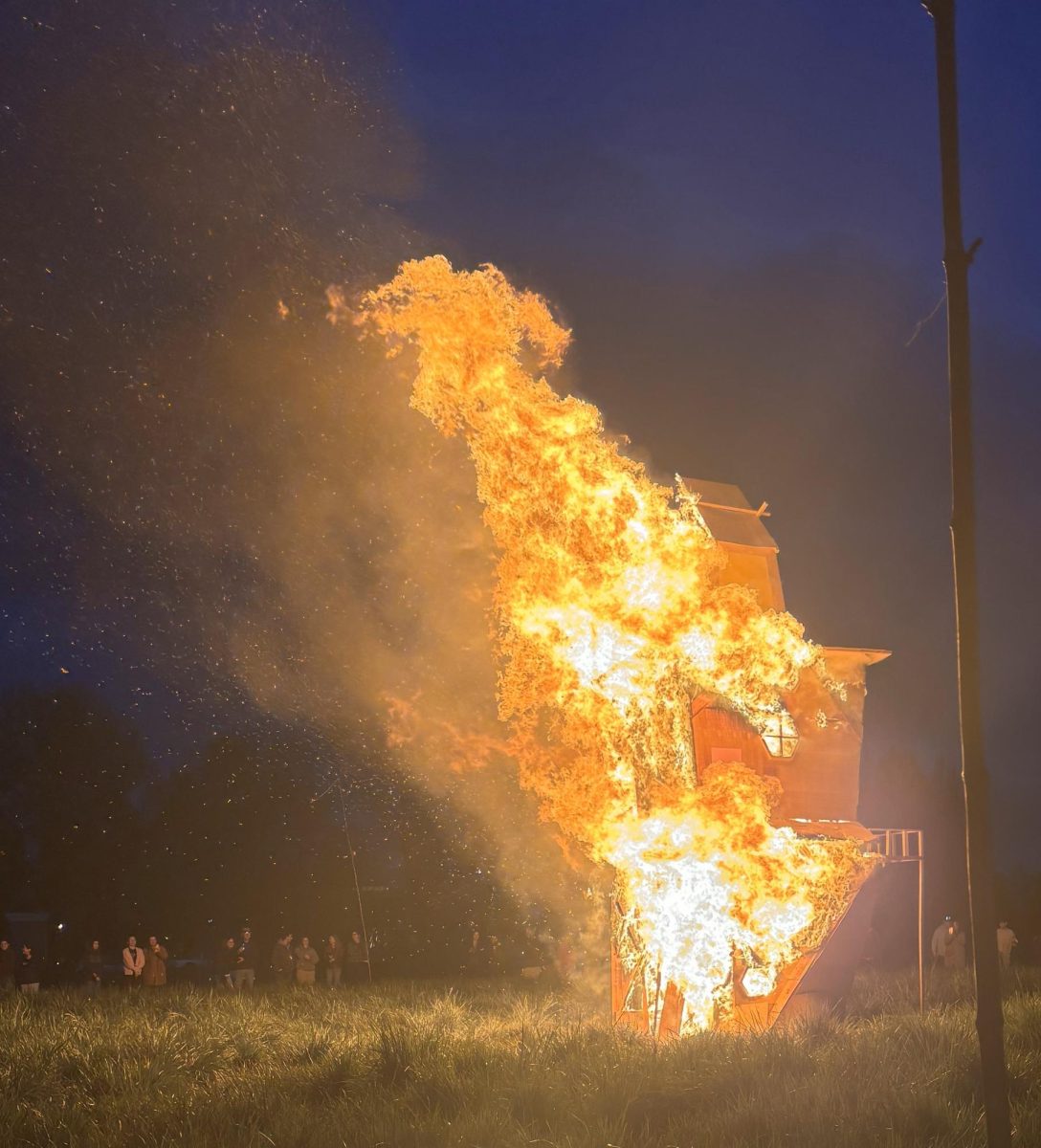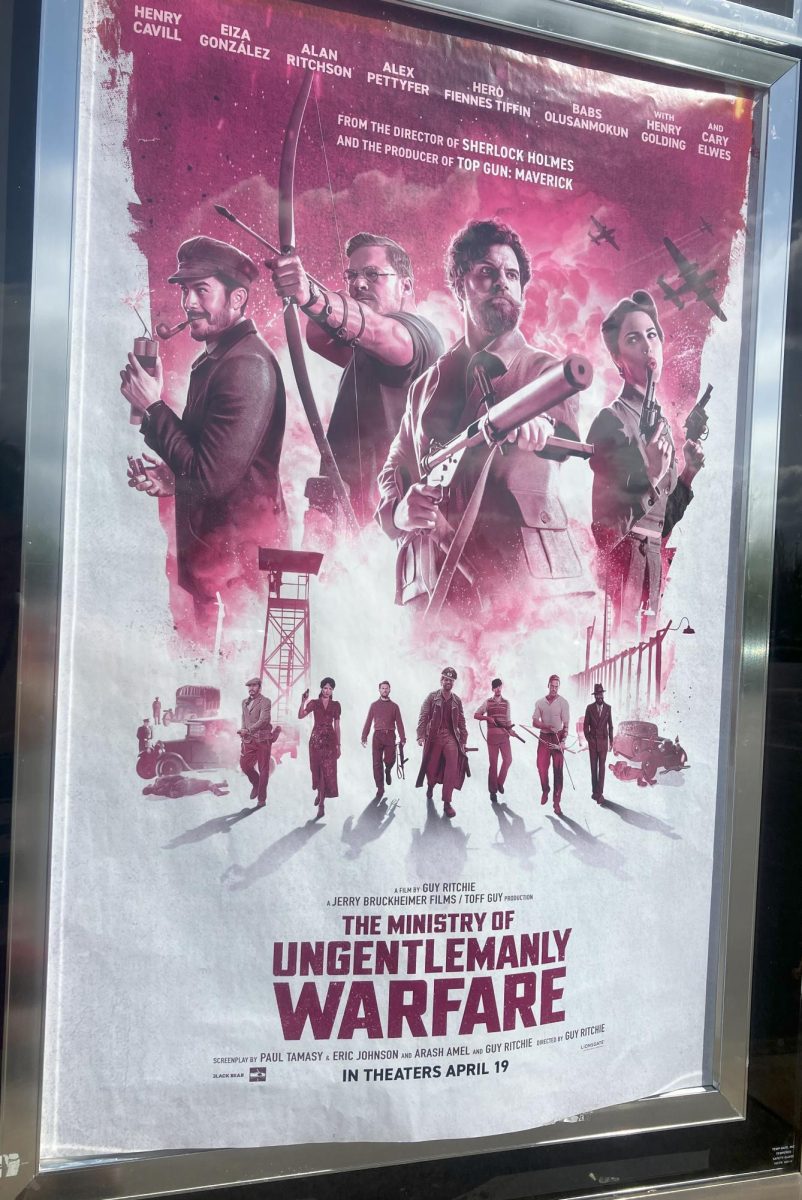P.J. Wilson – for the Review
Senior Nadia Abraibesh shared the experience of attending her cousin’s traditional Libyan wedding to students and faculty members in a packed Jonasson Hall on Nov. 10.
Abraibesh explained the engagement, wedding and post-wedding process of a traditional Libyan wedding, which is different from traditional Western ceremonies.
“Weddings are extremely important and are extravagant in Libya,” Abraibesh said. “Even if the family doesn’t have the money to make it as extravagant as it wants, it will sell everything to make sure that it is.”
During the engagement process, the males on the groom’s side, minus the groom himself, go to the bride’s house and ask for her hand. Following her acceptance, a formal meeting takes place to discuss details about the couple’s match, such as where the pair will live after the wedding.
The next day is called the Fatha, or the document signing day, where only men are present to sign the marriage certificate. Fatha also serves as the day of the official wedding announcement.
Next, the family prepares for the wedding by cooking and planning the festivities, as the wedding usually happens two to three days after the documents are signed.
There are then three days of the wedding itself: Rummi, the day the groom’s family dresses up in traditional clothing and gives gifts to the bride’s family; Henna, when the bride’s family dresses up in traditional clothing and places an 80-gram piece of gold in the hand of the bride, a gift usually from the groom’s mother, and puts henna on her hands, wrists, ankles and feet; and the actual wedding ceremony.
Although her family was dressed in Libyan clothing, the bride, Nadia’s cousin, wore a traditional Western gown for her wedding.
After the wedding, there is a Tsndeer, or a sitting, in which the bride and groom dress up in traditional clothing and sit together while people bestow them with blessings and gifts. After the post-wedding comes a honeymoon. The couple then begins its married life.
“Even though it is frustrating that I don’t speak much Arabic, it was still a great experience, and my family went out of their way to try and communicate with me and welcome me,” Abraibesh said.
Along with the presentation, attendees enjoyed traditional Libyan cookies prepared by Abraibesh’s mother. Photos of the family dressed in traditional Libyan clothes were also passed through the audience. Video clips of the wedding were shown. Throughout the presentation, family friends helped explain the traditions of Libyan weddings and volunteers went on stage to try on traditional clothing to give the audience a taste of what a real Libyan wedding is like.
“I wanted people to learn about another culture,” Abraibesh said. “I think it is important for people to hear about traditions and customs that occur in other cultures.”
Overall, the audience was engaged and interested in all that was being presented.
“It was really interesting,” freshman Tessa Hanson said. “I’m in anthropology right now, and we’re studying marriage, so it’s cool to see it in action and get kind of a firsthand experience.”







Ahmed G • Nov 19, 2009 at 4:54 am
Very well done Nadia I hope you do more work of this kind to educate others about cultural values.